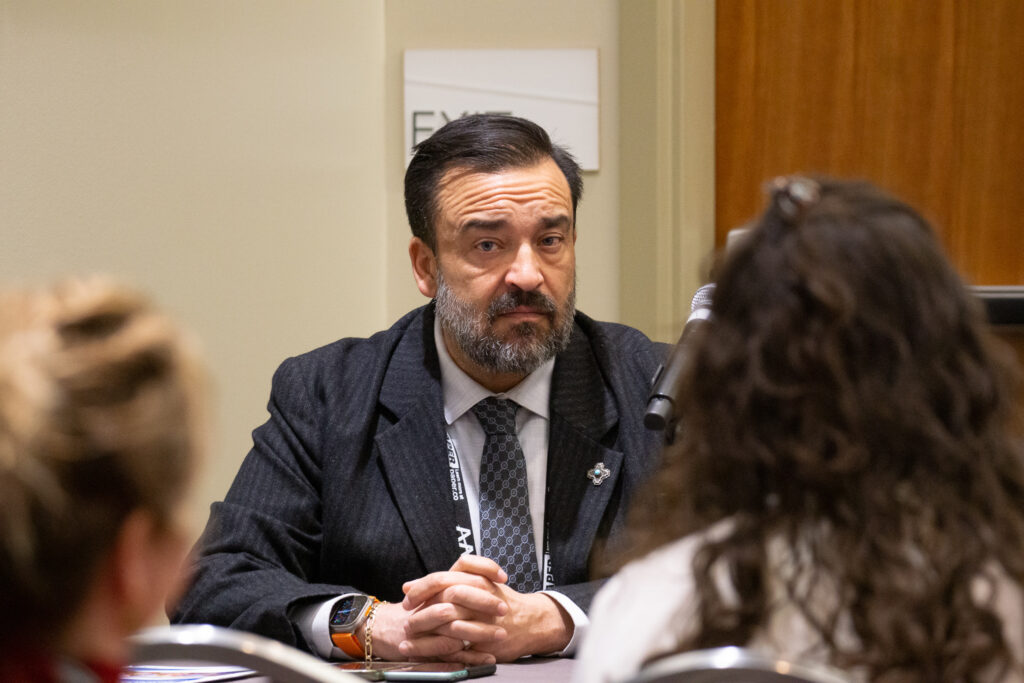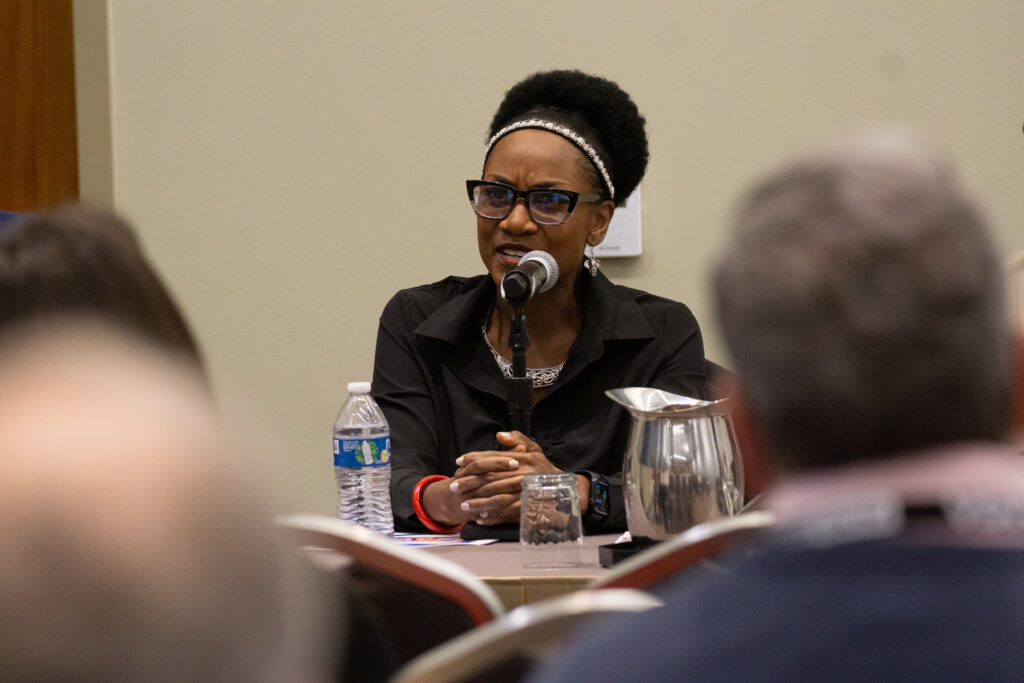From the abrupt shift to online instruction in 2020 to ChatGPT, the “Leading and Learning in a Digital Age for All Students” panel at the AASA national conference gave school leaders advice on how to grow with the times.
The Friday morning panel was facilitated by Richard Culatta, CEO of ASCD/ISTE, who provided insight into the technology side of the discussion. Panelists provided the superintendent perspective, with speakers Marlon Styles, superintendent in the Middletown City School District in Ohio; Avis Williams, superintendent at New Orleans Public Schools in Louisiana; P.J. Caposey, superintendent of Meridian CUSD 223 in Illinois; and Arsenio Romero, superintendent at Los Lunas Schools in New Mexico.
When the pandemic hit, educators had to make the “massive, messy change” to virtual instruction, with little to no preparation. Now, schools are much better equipped to provide students with access to technology, the panel members indicated, but finding the tools to keep up with the ever-evolving technology is the next challenge.
“For so long, … access was about, like, can we plug into the internet? And, you know that's good. We have to do that,” said Culatta. “What's fascinating is that we’re thinking about access in a different way now, and when we're talking about access, we're really talking about access to expertise, access to other people.”
This, the panelists agreed, is something that must be tackled across generations. Students are being born into a world where technology is already highly present in their everyday lives, while educators are left struggling to adapt.

Romero said, “When you think about what these kids can do, they are amazing. They are risk takers, they build prototypes, they jump in. … But we, as adults, are like, ‘I don't know if we can do this, it's going to be hard,’ and so, it's us as adults, that is holding us back. … That's what's holding us back, in my district, is getting the adults to be able to take risks build prototypes, too, and to be okay to fail. And if we can figure that out, then we're going to do some amazing things for kids.”
As the floor opened for questions, the highly anticipated question of ChatGPT came up, as a member of the audience asked for the panel’s advice on how to handle artificial intelligence’s entry into K-12 education. The panel’s responses were varied, but there was a general consensus about taking control of the narrative, reiterating the idea of inspiring curiosity and innovation in adults, too. More than anything, however, the panelists emphasized the importance of talking to students, using their voice to help decide what the best course of action is in regards to all technology.
“My core values are equity, excellence and joy,” said Williams. “And, for me, equity is all about removing barriers and providing access, and, as it relates to technology, that's extremely important. But one thing that I really lean into is student voice and just making sure that our scholars have a say in how we're using technology and what they actually need in order to improve their outcomes.”
(Angelina D’Elia is a reporting intern with AASA’s Conference Daily Online and a sophomore at Trinity University in San Antonio, Texas.)

